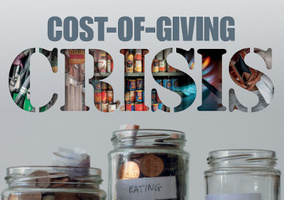A third of local charities have seen an increase of 60% or higher in their utility costs since September 2021, according to a survey published today.
The research found many organisations have been partially insulated from large increases in utility costs by having a fixed tariff but approximately half of these will expire from March 2023.
Around three quarters of respondents to the Community Building Barometer, which received 121 responses, reported increased need for their services given the current cost-of-living crisis.
The report also found that 47% of respondents were acting as warm hubs, “although there is an issue that the funding for this is very ad hoc with some having to fund this from their own reserves”.
Utilities become biggest outgoing
The report found that utilities had overtaken staffing as the most significant cost for many small charities.
“We also asked organisations to rank their costs with half of respondents saying that utilities were their largest single cost and staffing being largest in only 40% of respondents. This is significant, as staffing is traditionally an organisation’s biggest single cost.”
One respondent said they had seen energy bills rise from £300 a month to £3,800 a month and that they were using all of their organisation's reserves to cope.
The report states that because of their funding model community spaces are especially vulnerable to the current large rises in utility costs.
“Many community spaces are old buildings which are not the most energy efficient. The current government support with utility costs is welcome, but the uncertainty from April is a concern.”
Respondents were also asked about their organisations’ financial position. Around 20% of respondents’ financial position had improved, but for 50% of organisations it had worsened.
Moreover, 78% of organisations identified that their financial position had worsened due to rising costs.
Community Matters undertook the research following the Pro Bono Economics and the VCSE Data and Insights National Observatory at Nottingham Trent University report, in order to gather data on Community Buildings.
Related Articles












